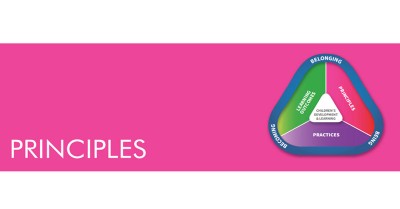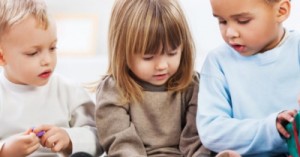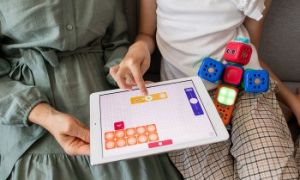The 8 Principles of children's learning and early childhood teaching represent modern theories, viewpoints, and research data. The Principles serve as the foundation for a practice that is geared toward helping all children progress with respect to Learning Outcomes. The following article provides details of each of the 8 Principles in the EYLF.
Educators take into account moral, inclusive, and socially just principles for young children's learning when they:
- develop trusting, respectful, and mutually beneficial partnerships
- Establish partnerships
- exhibit appreciation for diversity
- incorporate viewpoints from Aboriginal and Torres Strait Islander people
- firmly believe in equity, inclusivity, and high standards.
- Think about sustainability in all of its guises
- Take part in professional development and critical reflection.
- Teamwork and collaborative leadership should be used.
Secure, Respectful and Reciprocal Relationships
Educators who are attuned to children’s thoughts and feelings support their learning, development and well-being. Children’s first attachments within their families and trusting relationships within other familiar settings provide them with a secure base from which to explore the environment and build new relationships. Children’s experience of positive caring relationships and interactions with others plays a crucial role in healthy brain development. Research has shown the importance of relational and place-based pedagogies for children’s optimal learning, development and well-being. Through a widening network of secure relationships, children develop confidence and feel safe, respected and valued. They become increasingly able to recognise and respect the feelings of others and to interact positively with them.
Children receive constant emotional support from educators who prioritise nurturing relationships through culturally safe and responsive interactions. They recognise the significance of daily rituals and routines in the lives of children and work to help them acquire the knowledge, abilities, and skills necessary for social interaction, including self-control. Educators also help children learn about their responsibilities to others, support their own and others’ well-being, to appreciate their connectedness and interdependence as learners, and to value collaboration and teamwork.
Partnerships
Respecting one another's opinions, expectations, and values and relying on one another's expertise and skills are the cornerstones of successful partnerships. The best chance of achieving learning outcomes is when educators collaborate with kids, families, other professionals, and communities, including schools.These partnerships recognise the diversity of families and children. In genuine partnerships, educators collaborate with children, families, other professionals, community members and teachers in schools to support children’s learning, development and well-being.
In genuine partnerships educators:
- value and respect each other’s knowledge of each child
- value and respect each other’s contributions to and roles in each child’s life
- build trust in each other
- act with empathy and sensitivity when children are experiencing adversity
- discover new ways of knowing, being, acting, and thinking
- Safe and courteous communication and information sharing between all parties
- share insights and perspectives about each child with families
- acknowledge the diversity of families and their aspirations for their children
- To enhance children's learning, growth, and welfare, participate in shared decision-making.
The earliest and most important teachers for children are their families, according to educators. All children and families are appreciated in this inclusive and culturally secure environment, regardless of their background, ethnicity, languages spoken, religion, family structure, or gender. To make sure that learning experiences are meaningful, educators, students, and families work together to decide on the curriculum. Such partnerships are frequently encouraged by educators.
Responsible information sharing and safety measures taken by educators to protect children's rights to privacy and protection lead to the development of ethical relationships. In order to keep kids safe and families informed about e-safety information, educators develop relationships with families and others because they are aware that kids are involved with popular culture, media, and digital technologies.
Teachers use trauma-informed approaches because they are aware that certain kids may not have grown up in loving, supporting homes. In order to improve the learning, development, and overall well-being of these kids, they collaborate with other professionals; as part of this, educators share information and maintain records.
In partnerships, educators, families, other professionals, people of the community, and teachers collaborate for the benefit of the children. In order to ensure that children from varied origins, families, and abilities may actively participate in learning, these partnerships offer chances to investigate the learning potential in regular rituals, routines, transitions, and play experiences.
Respect For Diversity
There are numerous ways to exist, to be, and to know. Children are born into a culture that is shaped by experiences, values, and beliefs of specific families and communities in addition to traditional customs, heritage, and ancestral knowledge. Respecting diversity entails valuing and incorporating family practises, beliefs, and values into the curriculum. Teachers respect families' histories, cultures, languages, customs, faiths, spiritual beliefs, methods of raising children, and way of life decisions. For every child and their family, they create situations that are safe and secure regardless of culture. Teachers respect the home lives of families and value the distinctive and varied capacities and capabilities of each child.
Teachers understand that diversity adds to the richness of our society and offers a reliable evidence base for various modes of knowing. It also involves actively working toward reconciliation and fostering a better awareness of Aboriginal and Torres Strait Islander knowledge systems and ways of being for Australian youngsters.
Teachers can encourage children's drive to study and strengthen their perception of themselves as capable learners by respecting the diversity of families, and communities, and hopes they have for their children. In addition to responding to the complexity of children's and families lives, they develop curricular decisions that protect all children's rights to have their cultures, identities, languages, skills, and strengths acknowledged and valued. Teachers consider opportunities and problems that may result from diversity seriously and act to correct injustice. They give kids the chance to study resemblances and differences, as well as interdependence and citizenship.
Aboriginal and Torres Strait Islander Perspectives
Providing opportunities for Aboriginal and Torres Strait Islander children to see themselves, their identities and their cultures reflected in their environment is important for growing a strong identity. Embedding Aboriginal and Torres Strait Islander perspectives in all educators’ philosophy and practice is a key tool to advance Reconciliation. This also contributes to Closing the Gap commitments and fulfilling every Australian child’s right to know about Australia’s First Nations’ histories, knowledge systems, cultures and languages. Embedding Aboriginal and Torres Strait Islander perspectives is a shared responsibility of approved providers, educators, and other professionals working in early childhood educational settings, regardless of whether Aboriginal and Torres Strait Islander children and families are enrolled in that setting.
Aboriginal and Torres Strait Islander peoples are the longest-surviving Indigenous culture in the world and the custodians of this land. Their knowledge systems, traditions, ceremonies, lore and culture have survived for over 60,000 years. Relationships and continual connections to Country and community are at the heart of who they are and the contributions of Aboriginal and Torres Strait Islander people – past and present – should be acknowledged and valued in children’s learning.
Educators think deeply and seek assistance where possible, through engaging with Aboriginal and Torres Strait Islander people, about how to embed Aboriginal and Torres Strait Islander perspectives in the philosophy of the setting, their planning and implementation of the curriculum. They have a responsibility to create culturally safe places, working in intercultural ways through pedagogy and practice. An intercultural space is created when educators seek out ways in which Western and Aboriginal and Torres Strait Islander knowledge systems work side by side.
Educators grow their knowledge of kinship systems and cultural connections in their local communities so they can build engaging reciprocal relationships between services and the community. Acknowledging the strengths and capabilities of Aboriginal and Torres Strait Islander families while supporting well-being assists in reinforcing and affirming a positive sense of identity for their children.
The history and culture of Aboriginal and Torres Strait Islander peoples is respectfully and truthfully reflected through community involvement and culturally sensitive practices. Embedding Aboriginal and Torres Strait Islander knowledge and perspectives encourages openness to diverse perspectives, enhances all children’s experiences and assists in the authentic advancement of Reconciliation. It is a commitment to children learning about what has come before and working together for what is to come.
Equity, Inclusiveness, and High Standards
All children have the right to participate in inclusive early childhood environments, regardless of their circumstances, strengths, gender, talents, or different ways of doing and being, according to educators who are devoted to equality. They design inclusive learning spaces, use adaptable and knowledgeable techniques, and make reasonable adjustments to maximise access, participation, and engagement in the learning process. This promotes children's well-being and successful results across all of their differences. The steps or actions done by licenced providers and educators to support the meaningful participation of children with impairments or who are facing learning challenges are known as reasonable adjustments2. Teachers encourage children's joy, optimism, and sense of pleasure while also encouraging their friendships and social connections.
Teachers critically evaluate, oppose actions that support injustice or prejudice, and choose lessons that encourage true involvement and inclusion. They acknowledge and address attitudinal and practical challenges that some kids confront in order to facilitate the inclusion of all kids. Such barriers can be related to disability, family diversity, cultural and linguistic diversity, neurodiversity, and children and families living through trauma and adversity.
Teachers have high expectations for all students' academic performance and see them as all competent and capable. In order to foster learning, growth, and overall wellness, they work to give all kids access to equitable and participative environments and experiences. By doing this, educators acknowledge that equity does not mean equal or the same things for all children and that certain children may require more support and greater access to resources in order to engage in early childhood settings. Aiming to create equitable and efficient approaches to guarantee that all children have the chance to attain Learning Outcomes and flourish, educators continuously expand their knowledge and abilities as professionals while collaborating with kids, families, communities, and other professionals.
Sustainability
Humanity and the planet we share with all living things face some big challenges. Educators and children have important and active roles to play in creating and promoting sustainable communities.
Broadly defined, sustainability spans environmental, social, and economic dimensions which are intertwined. Environmental sustainability focuses on caring for our natural world and protecting, preserving and improving the environment. Social sustainability is about inclusion and living peacefully, fairly and respectfully together in resilient local and global communities. Economic sustainability refers to practices that support economic development without negatively impacting the other dimensions This includes a focus on fair and equitable access to resources, conserving resources, and reducing consumption and waste.
Adopting this broader definition helps to meet the needs of the present without compromising the ability of future generations to meet their own needs. In sustainable communities, the requirements of humans, animals, plants, lands, and waters can be met now and for generations to come.
Educators recognise children’s avid interest in their world, their ability to engage with concepts of sustainability and their capacity to advocate and act for positive change. Children’s agency and their right to be active participants in all matters affecting their lives is supported. Further, children’s understanding of their citizenship, rights and responsibilities as members of local and global communities, is built through meaningful and relevant educational experiences.
Thinking about sustainability means thinking about the future and acting to create healthy, just and vibrant futures for all. Educators encourage children to develop an appreciation of the natural world, understand our impact on the natural world, and the interdependence between people, animals, plants, lands and waters. Sustainable practices are created with children and children are supported to take an active role in caring for the environment and to think about ways they can contribute to a sustainable future. Recognising that Aboriginal and Torres Strait Islander peoples have looked after Country for the past 60,000 years, educators and children learn about Aboriginal and Torres Strait Islander history, culture and rich sustainable practices.
Educators provide opportunities for children to learn about all the interconnected dimensions of sustainability, understanding that sustainability goes beyond learning in nature and being involved in nature conservation. Children are supported to appreciate that sustainability embraces social and economic sustainability – as well as environmental sustainability – and to engage with concepts of social justice, fairness, sharing, democracy and citizenship.
Continuous Professional Development and Critical Reflection
Teachers are always looking for new ways to expand their professional knowledge, sharpen their skills, and create learning environments. They value the continuity and depth of the local knowledge offered by community people, particularly Aboriginal and Torres Strait Islander Elders, and learn alongside children, families, and the local community. Although they are two distinct acts, contemplation and critical reflection are two words that are frequently used synonymously.
Reflection is the deliberate consideration of one's own and others' practises by educators with predetermined objectives or goals. Making sense through critical reflection requires more in-depth levels of analysis and thought. It necessitates interaction with various viewpoints, such as philosophy, theory, ethics, and practice, and then an evaluation of these viewpoints in light of the circumstances, resulting in transformational pedagogical decisions and actions. In their capacity as professionals, educators examine, pinpoint, and assess various viewpoints in relation to their respective contexts and circumstances. Critical reflection has consequences for equity and social justice by influencing future practice in ways that show an awareness of each child's learning, development, and wellness.
In actuality, educators can create more focused questions for fields of research by framing their critical reflection within a set of overarching questions.
Overarching questions to guide critical reflection might include:
- What do we know about each child, their culture, and their environment?
- What doubts do we have regarding our work? What presents a challenge to us? What are we interested in? What challenges do we face in terms of our own biases?
- What ideas, beliefs, and comprehensions inform and underpin our work?
- What, if any, limitations do our practices have because of the ideas, knowledge, and worldviews that we typically use to explain what we do?
- What alternative concepts, ideas, or worldviews could we use to interpret what we have seen or experienced? Describe them. How may those concepts and expertise influence our work?
- When we collaborate in this manner, who benefits/is included? Who is marginalised, left out, or unheard?
When children, families, and educators as a team are all participating in a continuous cycle of evaluation, a strong culture of critical reflection is formed. Examining current procedures, evaluating their results, and developing, testing, and experimenting with new ideas. This method encourages instructors to reconsider conventional wisdom and consider the reasons why some methods are effective. In such an environment, there is room for an in-depth discussion on pedagogy, equity, and the welfare of children. Critically reflective educators actively seek out chances for skill improvement, collaborate with their colleagues on early childhood practice issues, and are dedicated to their own ongoing professional learning and growth.
As professionals, educators are dedicated to lifelong learning and actively seek out chances to advance their knowledge and abilities in order to support practice-based quality improvement. Together with their coworkers, they decide on learning priorities, consider how they learn best, and search for experiences that are evidence-based and promote deep learning, critical reflection, and practice change. Teachers are aware that lifelong learning can take many different forms. This could include context-specific professional learning activities like professional team dialogues, coaching and mentoring, professional reading, practitioner inquiry, and involvement in group research initiatives. It could also involve learning chances provided by others, such as seeking more education, going to conferences, and finishing professional development courses. Early childhood settings allow team members to communicate fresh information.
Teamwork And Collaborative Leadership
Every educator engages in some level of leadership in their interactions with students, families, and coworkers every day. As they accept both professional and personal accountability for their acts and the judgements they make, educators set the example for their own ethical behaviour. A sense of shared ownership and professional accountability for children's learning, development, and wellness is the foundation of collaborative leadership and cooperation. It is a leadership philosophy that encourages each team member to use their expertise to the best of their ability for the benefit of the children, families, and coworkers in their environment.
A productive workplace culture includes collaborative leadership and teamwork, where the desire to put into practice a professional philosophy of cooperation and collaboration fosters the development of healthy relationships. Children and families are sensitive to the workplace culture in an early childhood facility, which has an impact on their interactions, relationships, and experiences there.
Teamwork and collaborative leadership are built on polite and professional discussions of practice. In order to critically reflect on their practice both individually and collaboratively and to contribute to curriculum decisions and plans for quality improvement, educators interact with various modes of thinking and working. When teachers speak with one another and share thoughts and opinions on how to improve practice, children's learning, growth, and wellness are maximised. For high-quality early childhood programmes for children, collaborative leadership and teamwork encourage a culture of peer mentoring and shared learning where all team members contribute to each other's professional learning and progress.
Further Reading
EYLF Learning Outcomes Version 2.0 - The following articles provide a list of the 5 EYLF Learning Outcomes and their sub-outcomes (Version 2.0).
EYLF Outcome 1 - Child Have A Strong Sense Of Identity V2.0 - The following lists the sub outcomes, examples of evidence when children can achieve each sub outcome and how educators can promote and help children to achieve EYLF Learning Outcome 1: Children Have A Strong Sense Of Identity V2.0.
EYLF Outcome 2 - Children Are Connected With And Contribute To Their World V2.0 - The following lists the sub-outcomes, examples of evidence when children achieve each sub-outcome and how educators can promote and help children to achieve EYLF Outcome 2 - Children Are Connected With And Contribute To Their World V2.0.
EYLF Outcome 3 - Children Have A Strong Sense Of Wellbeing V2.0 - The following lists the sub-outcomes, examples of evidence when children achieve each sub-outcome and how educators can promote and help children to achieve EYLF Outcome 3 - Children Have A Strong Sense Of Wellbeing V2.0.
EYLF Outcome 4 - Children Are Confident And Involved Learners - The following lists the sub-outcomes, examples of evidence when children achieve each sub-outcome and how educators can promote and help children to achieve EYLF Outcome 4 - Children Are Confident And Involved Learners V2.0.
EYLF Outcome 5 - Children Are Effective Communicators V2.0 - The following lists the sub-outcomes, examples of evidence when children achieve each sub-outcome and how educators can promote and help children to achieve EYLF Outcome 5 - Children Are Effective Communicators V2.0.
Reference:
The Early Years Framework For Australia, ACECQA







 Here is the list of the EYLF Learning Outcomes that you can use as a guide or reference for your documentation and planning. The EYLF
Here is the list of the EYLF Learning Outcomes that you can use as a guide or reference for your documentation and planning. The EYLF The EYLF is a guide which consists of Principles, Practices and 5 main Learning Outcomes along with each of their sub outcomes, based on identity,
The EYLF is a guide which consists of Principles, Practices and 5 main Learning Outcomes along with each of their sub outcomes, based on identity, This is a guide on How to Write a Learning Story. It provides information on What Is A Learning Story, Writing A Learning Story, Sample
This is a guide on How to Write a Learning Story. It provides information on What Is A Learning Story, Writing A Learning Story, Sample One of the most important types of documentation methods that educators needs to be familiar with are “observations”. Observations are crucial for all early childhood
One of the most important types of documentation methods that educators needs to be familiar with are “observations”. Observations are crucial for all early childhood To support children achieve learning outcomes from the EYLF Framework, the following list gives educators examples of how to promote children's learning in each individual
To support children achieve learning outcomes from the EYLF Framework, the following list gives educators examples of how to promote children's learning in each individual Reflective practice is learning from everyday situations and issues and concerns that arise which form part of our daily routine while working in an early
Reflective practice is learning from everyday situations and issues and concerns that arise which form part of our daily routine while working in an early Within Australia, Programming and Planning is reflected and supported by the Early Years Learning Framework. Educators within early childhood settings, use the EYLF to guide
Within Australia, Programming and Planning is reflected and supported by the Early Years Learning Framework. Educators within early childhood settings, use the EYLF to guide When observing children, it's important that we use a range of different observation methods from running records, learning stories to photographs and work samples. Using
When observing children, it's important that we use a range of different observation methods from running records, learning stories to photographs and work samples. Using This is a guide for educators on what to observe under each sub learning outcome from the EYLF Framework, when a child is engaged in
This is a guide for educators on what to observe under each sub learning outcome from the EYLF Framework, when a child is engaged in The Early Years Learning Framework describes the curriculum as “all the interactions, experiences, activities, routines and events, planned and unplanned, that occur in an environment
The Early Years Learning Framework describes the curriculum as “all the interactions, experiences, activities, routines and events, planned and unplanned, that occur in an environment


